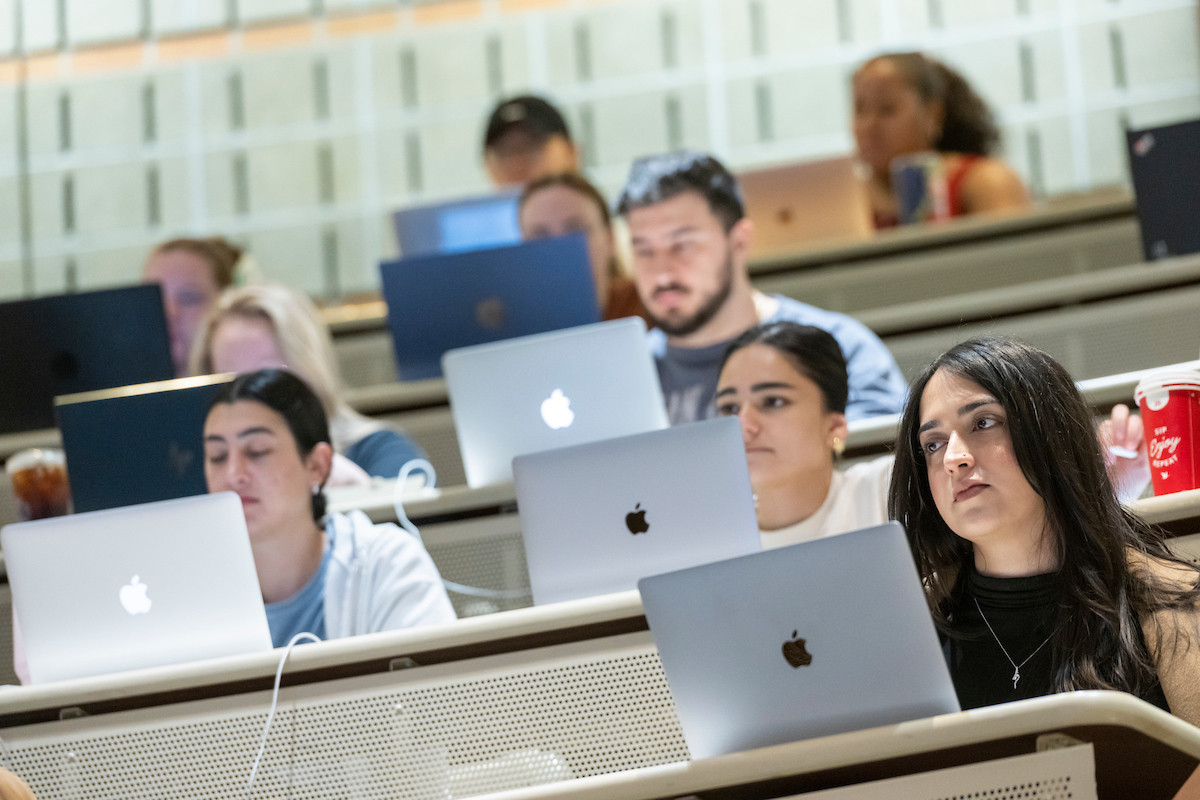Delaware Law Clinics: Creating the foundations for legal practice
3/11/2024

Delaware Law School offers multiple exciting opportunities for students to get hands-on learning experiences working in support of real clients through the school’s law clinics.
Six clinics across varied areas of the law are offered, providing valuable and informative experiences where students work alongside licensed attorneys, often interacting with the clients, drafting legal documents and even going to court.
“The learning students have in the classroom provides an important foundation for legal practice. The clinic experience, however, brings the law to life. It gives student interns the opportunity to practice law at the earliest possible stage in their legal careers,” said Professor Dana Harrington Conner, who leads the Delaware Civil Clinic. “The learning and practice occur in a safe environment, with direct and constant supervision of a practicing attorney, so that the students can build their legal skills and develop their professional identities prior to graduating from law school. It is a wonderful way to learn how to practice law."
At Delaware Law, students can choose from:
The Delaware Civil Law Clinic: where students gain practical experience in cases of domestic violence, child custody and visitation, assisting the elderly and terminally ill, and more. This clinic provides a live client experience offering civic engagement in the local community. Student interns are admitted to the limited practice of law pursuant to Delaware Supreme Court Rule 56.
Pennsylvania Criminal Defense Law Clinic: students represent individuals accused of misdemeanor crimes in Chester County, Pennsylvania in this clinic. Students receive their cases before the first court appearance and work hard to obtain the best possible outcome for their clients through negotiation or litigation.
Environmental and Natural Resources Law Clinic: Students who have an interest in defending the environment work with the clinic director, who is a member of the law school faculty, and other attorneys to represent individuals or organizations seeking to protect the environment in the Mid-Atlantic region.
Veterans Law Clinic: One of the first of its kind in the country, this law clinic was founded nearly 30 years ago to provide representation to low-income and disabled veterans and their dependents whose benefits have been denied by the Department of Veterans Affairs. Licensed attorneys and clinic interns appeal those denials and to date have recovered $17 million in benefits for their clients. The clinic also assists clients with discharge upgrades and simple wills. Outside of direct client representation, the clinic is involved in policy and leadership work through the National Law School Veterans Clinic Consortium.
Innocence Project Delaware Legal Clinic: Students work with Innocence Project Delaware on claims of actual innocence made by people who maintain they have been wrongfully convicted in Delaware. From screening cases for representation, to investigating facts that occurred decades ago, to performing complicated post-conviction legal analyses, students experience first-hand the dedication and perseverance required to do this important legal work.
Dignity Rights Clinic: The law school’s newest clinic is the only clinic in the world dedicated to using the legal system to protect the inherent and equal dignity of every person, everywhere.
Each clinic is a rewarding experience, which allows students to practice law in the real world before graduation.
Eryn Scott, a third-year law student interning in the Veterans Clinic, highlighted the invaluable lessons reaching far beyond the classroom. “The Veterans Law Clinic reinforced the significance of advocating for those who have served our country, highlighting the complexities of navigating legal systems for individuals with unique needs. Moreover, it emphasized the importance of interdisciplinary collaboration, as addressing veteran's legal issues often requires coordination with healthcare providers, social workers, and other professionals,” Scott said. “This experience not only deepened my understanding of the law but prepared me to navigate complex legal issues and zealously advocate for my future clients.”
